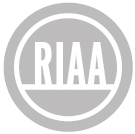 The Recording Industry Association of America (RIAA) said that Jammie Thomas has no basis to complain about the damages decided by a Jury when she was found guilty of illegally distributing 24 pirated tracks. Thomas was told to pay $222,000 to the record companies when the Jury decided on damages of $9,250 per song. The jury could have decided anywhere between $750 per song and $150,000 per song under the provisions of the copyright act.
The Recording Industry Association of America (RIAA) said that Jammie Thomas has no basis to complain about the damages decided by a Jury when she was found guilty of illegally distributing 24 pirated tracks. Thomas was told to pay $222,000 to the record companies when the Jury decided on damages of $9,250 per song. The jury could have decided anywhere between $750 per song and $150,000 per song under the provisions of the copyright act.
Defending the damages, the RIAA argues that statutory damages need not be tied to actual damages. "Defendant's argument that statutory damages must bear some reasonable relationship to actual damages has been considered, and rejected, by numerous courts," reads the reply. "Awards of statutory damages under the Copyright Act that fall within the limits set by Congress are for the jury to determine, whatever the amounts of actual damages (if any)."
The trade group says that Thomas is wrong to focus only on damages incurred from illegal downloading, and that the plaintiffs were harmed from the further unauthorized distribution of the downloaded tracks. However, the RIAA presented no evidence that any distribution actually took place, it didn't have to, Judge Michael Davis modified instructions to say that simply making files available violated the labels' exclusive right of distribution, regardless of whether the songs were distributed or not.
"Defendant should not now be allowed to shirk her responsibility for her own calculated decisions first to engage in substantial online infringement of Plaintiffs' copyrights and then to try to conceal her infringement," argues the RIAA. "Where, as here, the amount awarded by the jury was less than 10% of what the jury could have awarded, there is no basis for a remittur or a new trial."
It is unknown when Judge Davis will rule on Thomas' motion.
Source:
Ars Technica











